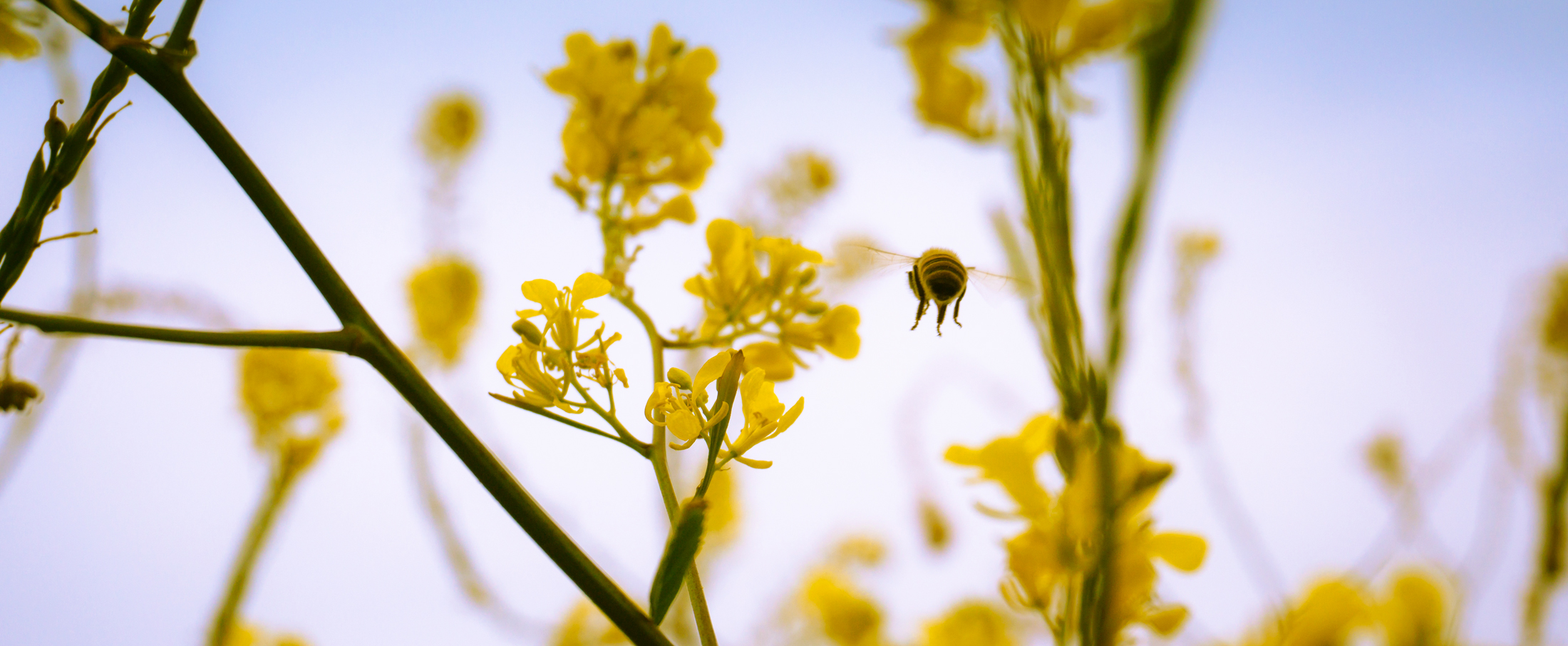NATURAL ALTERNATIVES TO PESTICIDES
Below we are including a few natural alternatives to chemical and/or pesticide use in gardens and outdoor spaces. Pesticides are very popular among garden centers and are extremely harmful to our natural environment, as well as our food chain. We must avoid pesticide use at all costs in our outdoor spaces. Plenty of organic and/or natural options are readily available—and with todays advances, these organic options take care of the problem just as well as toxic chemical alternatives. If any of the tips below do not serve as a solution for your problem, do not hesitate to reach out to your local nursery and/or gardening expert! Your pollinator community and natural environment will thank you.
PLANTS HELPING PLANTS:
Plant marigolds and/or feverfew around vegetable and flower gardens. Most insects dislike the strong odor.
Some types of pungent basil and sage also repel a variety of insects. Interspersing these plants in between produce and other garden greens will discourage pests.
Chives and nasturtium keep aphids away (especially rose bushes).
Borage will keep worms out of tomatoes.
Mint, lavender, diatomaceous earth and cedar mulch keep not only many varieties of insects away but also other pests like rabbits and mice.
Rosemary keeps away mosquitoes.
WEEDS? NO PROBLEM. (Please do not use Roundup):
Make your own herbicidal soap by mixing equal parts vinegar, salt and dish soap. Put the mixture in a spray bottle and apply it to your offending weeds. Be cautious this concoction will kill whatever plants it touches, so be careful not to get it on your budding blooms.
IF ALL ELSE FAILS? NATURAL / HOMEMADE SOLUTIONS:
GENERAL HOMEMADE INSECTICIDE SOLUTION: If other home remedies fail, make a general homemade insecticide solution. Dilute a solution of a simple dishwashing soap—with minimal dyes and fragrances, and water. Add a tablespoon of soap per quart of water. Spray thoroughly and repeatedly on plants. Simple liquid dish detergent has insecticidal properties that add even more protection value to your homemade bug spray.
GARLIC SOLUTION: Another popular solution is a mix of onions, garlic and pepper. Use fresh bulbs of garlic and onions to repel bugs on plants without harming the plant, and without the need for toxic chemicals or commercial pesticides. The sulfur compounds in the onion and garlic keep bugs away by simply producing an odor that pesky garden pests do not like. Garlic and onions can be mixed with water in a spray bottle and then applied to plants or they can be used alone.
Liquefy fresh onions and garlic in a blender, or just use garlic and onion powder steeped with water to make an onion-garlic "tea" that can be sprayed onto plants and/or outdoor surfaces where you want to keep bugs away.
In addition, to keep insects out of your garden, plant garlic and onion plants near your other plants. This will naturally repel insects and won't make any extra work for you.
A teaspoon of cayenne pepper powder can be steeped with onions and garlic to create a bug spray with multiple layers of protection. Cayenne pepper adds an extra layer of protection to homemade bug sprays.
DIATOMACEOUS EARTH (DE): A powder-like dust made from the silicate skeletons of tiny ocean-dwelling creatures called Diatoms. DE acts like broken glass to inhibit movement and kill pests by cutting into their waxy cuticle. It can either be added to the soil for grubs, applied to the soil surface for slugs and snails, or sprinkled on the foliage for mites, aphids, and larvae.
HAVE A SLUG PROBLEM? MAKE A BEER TRAP: Slugs can be the most elusive and damaging pests to many garden plants. They hide beneath the mulch or just under the soil at the base of the plants until the cool, moist evenings and mornings when they climb up and begin devouring the foliage and blossoms. You can pour some inexpensive beer into a shallow container and place it on the ground among the plants–the slugs are drawn into it and will quickly perish. To hide the trap, bury an open, full beer bottle with just the top inch sticking out of the soil. Some traps are even commercially available.
Another great resource for bee safe gardening tips can be accessed here.










